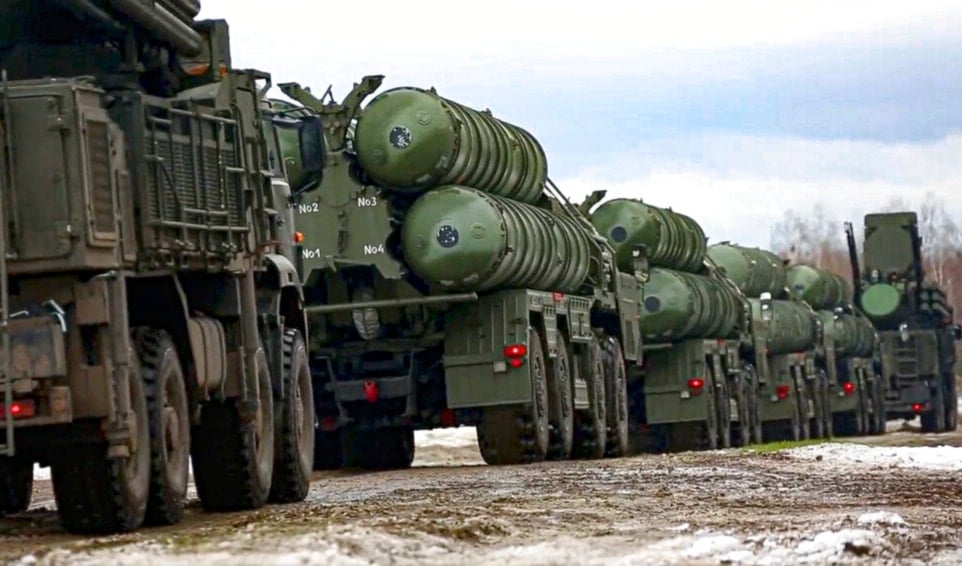Turkey not to forgo Russian S-400 missile systems despite US pressure
Ankara rejects US demands to scrap its Russian S-400 missile systems, proposing a joint oversight mechanism instead. The ongoing dispute has already led to Turkey’s removal from the F-35 program.
-

Combat crews of the S-400 air defense system drive to take up combat duty at the training ground in the Brest region during the Union Courage-2022 Russia-Belarus military drills in Belarus (Russian Defense Ministry Press Service via AP)
Turkey has once again reaffirmed its position on its use of Russian-made S-400 missile defense systems, defying persistent pressure from the United States. According to Bloomberg, Turkish officials have stated that Ankara has no intention of dismantling or discarding the S-400 systems.
Despite ongoing diplomatic friction with Washington, sources cited in the report indicated that Turkey is open to finding a middle ground regarding the systems' operational framework.
While rejecting the US demand for complete abandonment of the missile systems, Ankara has proposed an alternative: the establishment of a joint military mechanism to oversee the use of the S-400s. This proposal, Turkish officials believe, could address US and NATO concerns without compromising Turkey’s strategic autonomy.
About the deal and US response
In 2017, Turkey signed a $2.5 billion agreement with Russia to purchase four S-400 surface-to-air missile systems. The deal was completed by October 2019, with Rosoboronexport, Russia’s state arms exporter, confirming the successful delivery of the regiment set.
The move marked a significant shift in Ankara’s defense procurement strategy and raised alarms within NATO, as the S-400 system is not compatible with NATO’s defense architecture.
Following the acquisition of the S-400s, the US retaliated by removing Turkey from the F-35 stealth fighter jet program, citing security concerns. Washington argued that the integration of Russian technology could compromise the security of the F-35 platform, especially its radar signature and operational secrecy.
Strategic implications for NATO, regional defense
Turkey's insistence on keeping the S-400 systems despite US objections continues to raise questions about its long-term alignment within NATO. Ankara maintains that its defense decisions are a matter of national sovereignty and strategic independence.
The proposed joint oversight mechanism is an attempt to balance those interests with the realities of alliance commitments and international pressure, but whether Washington will accept the compromise remains uncertain.
Read more: Turkey demands its investment in F-35 be paid back by the US

 2 Min Read
2 Min Read








